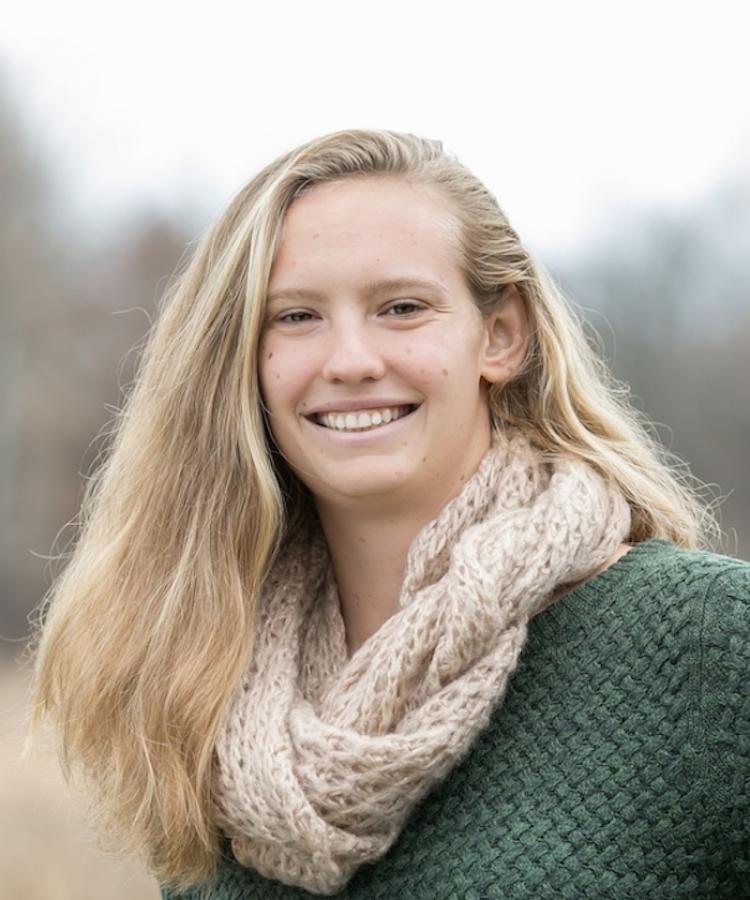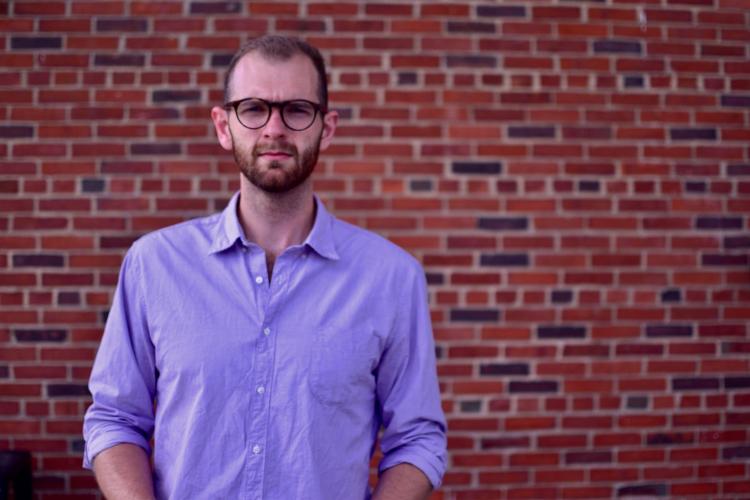Saturday 24th March was a wonderful day to be light blue. Cambridge rowers triumphed over Oxford in every race of the day, in both the men’s and women’s televised and reserve boats. Queens’ was proud to boast a team member in both Goldie, the men’s reserve boat, and Blondie, the women’s. We caught up with them to find out what makes rowing for Cambridge quite so special.
 |
Laura Foster (MPhil, 2017), first encountered rowing through a combination of height and geography.“I’m 6’1”, and I grew up in Princeton, New Jersey, where rowing was offered at my high school. Someone suggested I should give it a try, because of my height and because I wasn’t that good at other sports, and I’ve now been rowing since I was 14 years old.”Laura continued to row regularly throughout her undergraduate studies at the University of Michigan, and it became an integral part of her Cambridge experience when she arrived at Queens’ last year.“Rowing imposes a structure on my time which I think I’d struggle to do without,” she says. “As an undergrad it really focused me – it took up so much of my time that I had no choice but to work in the remaining hours. I don’t think I’d have done well enough in my undergraduate studies to get into Cambridge as a postgrad if it hadn’t been for rowing.”She acknowledges, however, that 18 hours a week of morning and evening training, days that begin at 4.45am, and trying to fit in the demands of an MPhil, doesn’t leave much time for anything else.“There’s not much room for any kind of social life! But, having said that, the people are the best thing about rowing. Rowers are incredibly driven, dorky and fun. It’s a trial by fire kind of friendship – you’re there for each other throughout all kinds of emotional and physical ups and downs.”Last month, Laura was part of the Blondie reserve boat crew, beating Oxford’s Osiris by nine lengths. While she was aware of the Boat Race before arriving in the UK, its significance took her by surprise.“I knew it existed, but not what a big deal it is. The noise and publicity and support around it were amazing – it’s an extraordinary thing to be part of.” |
 |
Gerard Kuenning (MPhil, 2017), grew up in New Hamphire, where his chosen sport was cross country skiing. Rowing entered his life as an undergraduate at Yale.
“It’s almost impossible to row competitively and not know about the Boat Race,” he says. “Harvard and Yale have an annual race which is modelled on the Oxford and Cambridge one, so having taken part in that it was very special to be part of the original.”
The widespread public awareness of the Boat Race in the UK has nevertheless been a shock.
“In the US, even if you row seriously, your audience is basically going to be your parents. So to come out of the boathouse and be hit by this roar of cheering was incredible. The fact that even people with no affiliation to either Oxford or Cambridge are aware of the race, pick a side and watch it in the pub is amazing.”
For Gerard, rowing is a sport in which it helps to be able to take the long view.
“You’re training six hours a day, six days a week, for a race that lasts 18 minutes,” he points out. “That’s what the people who watch it on television don’t always realise. The toughest thing, when you’re getting up at 5am in a Saturday in biting wind, in the dark, is that you’re working towards something far off in the distant future, and you don’t see any tangible results or gains at the time.”
However, the most gruelling aspects of the sport also result in its greatest compensations.
“The camaraderie is the best thing about it. That collective effort drives really strong bonds, and you really feel like a family. After spending that amount of time together training, you’d think we’d be sick of each other, but it’s only been three days since I saw those guys and I already miss them.” |